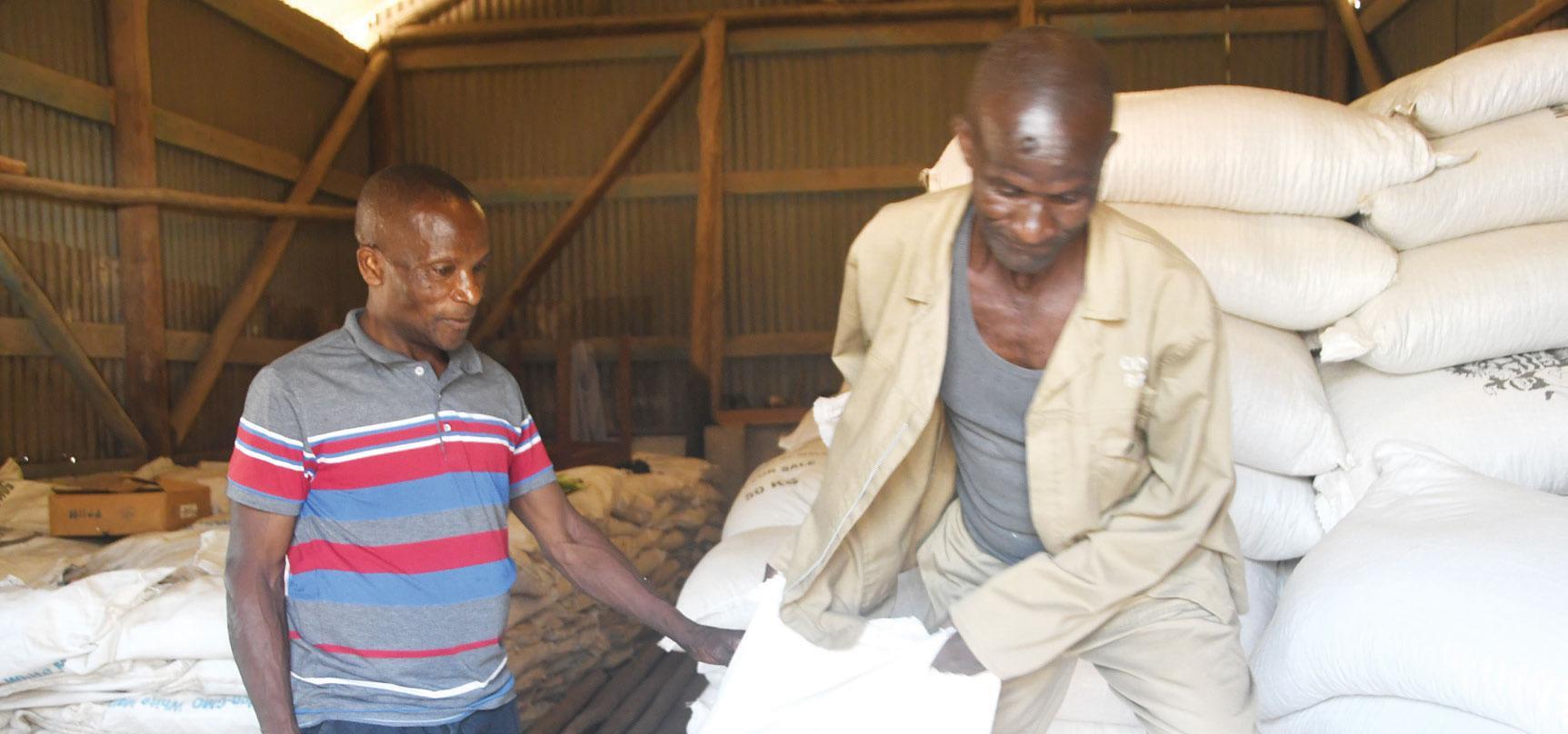Africa-Press – Malawi. Malawians in various parts of the country have issued a desperate call for the government to expedite the process of making maize available at Agricultural Development and Marketing Corporation (Admarc) depots across the country.
Our spot-checks yesterday in different areas of the Southern Region, which has reportedly been the hardest hit by the hunger crisis, revealed that several Admarc depots remain closed.
This is despite Admarc’s announcement that it would open the markets by Friday last week.
In Nsanje District, several people we spoke to indicated that they were struggling to find food, with some resorting to wild tubers locally known as nkhaka, which are said to be bitter and often cause stomach pains.
“We are dying here. Some of us cannot even afford to buy the maize because it is too expensive. We cry out to the government to quickly come to our rescue,” Esnart Bello, whom we found at Nsanje Town Centre, said.
In Machinga, where chiefs have also repeatedly raised hunger alarms, several Admarc selling points had not yet been opened by the time we went to press yesterday.
In Blantyre, we found the selling point at Zingwangwa open and selling maize, but with few people turning up to purchase the grain.
The maize was being offered at K790 per kilogramme (kg), an amount which is just K10 less than the K800 that most vendors are charging for their maize.
A buyer we encountered at Zingwangwa selling point, Ruth Zamadenga, said the price offered by Admarc did not provide much relief.
“We are happy, but the price is just the same. Perhaps that is why many people are not showing up. They do not see any difference between buying from vendors and from Admarc,” Zamadenga said.
Our visit to Admarc Northern Region offices and some of the selling points in the townships of Hill Top, Geisha and Chibanja in Mzuzu found the warehouses closed.
People were seen buying maize from local vendors at K31,250 per 50kg bag.
Margret Phiri, a vendor at Zigwagwa Market, said maize prices have decreased on the market.
“In fact, maize at Admarc is more expensive than here. So, we are not worried about the government’s decision to open the markets because our prices are lower,” Phiri said.
However, in Mzimba District, maize is fetching around K40,000 per 50kg bag.
As of yesterday, the district’s main maize depot at Mzimba Boma was also not open, as officials stated they had not yet received instructions from higher authorities to open the market.
In the Central Region, a snap survey by The Daily Times in the four districts of Lilongwe, Dowa, Kasungu and Ntcheu Monday revealed that most Admarc markets were still closed.
Among others, in Malawi’s capital Lilongwe, we managed to visit depots such as Chinsapo, Chigwiri and Kawale, which were all still closed.
In Ntcheu, while the depot at the boma was yet to open, we found that Admarc had opened Nsipe Depot, but customer traffic was subdued.
One resident, Micah Katola from Chigwiri, expressed frustration, citing the urgent need for maize.
“The delayed opening of Admarc markets will exacerbate the hunger situation in our area. We are in dire need of maize. If the government could consider opening the markets as soon as possible, it would alleviate the suffering,” Katola said.
When approached for an official comment on the situation, Admarc spokesperson Theresa Chapulapula requested more time before responding.
Last week, President Lazarus Chakwera directed that Admarc should open for maize sales so that hungry Malawians can begin purchasing maize from the parastatal’s selling points.
Chakwera issued the directive during his tour of the Southern Region, in response to calls for help from chiefs.
In a statement issued last week, announcing that Admarc would be selling maize at K790 per kg, translating to K39,500 per 50kg bag, Secretary for Agriculture Dickxie Kampani said 10,000 metric tonnes of maize would be distributed across all markets to ensure a steady supply.
“This distribution will prioritise the hardest-hit areas, mainly in the Southern Region and some lakeshore areas, and will later be expanded to other regions,” Kampani said.
Agriculture policy advocate Leonard Chimwaza expressed concern that the move may have minimal impact on price stabilisation and could even lead to increased prices across the country.
Chimwaza argued that the released quantities were insufficient, such that private traders could start using the new price as a baseline, potentially driving up prices.
For More News And Analysis About Malawi Follow Africa-Press






